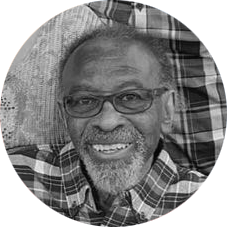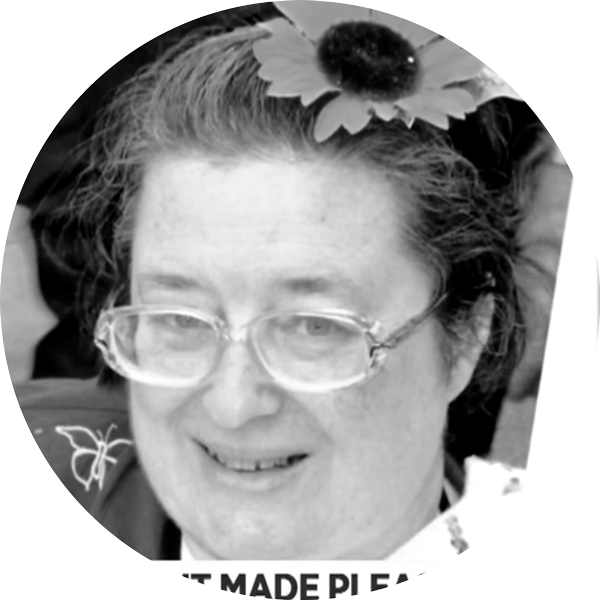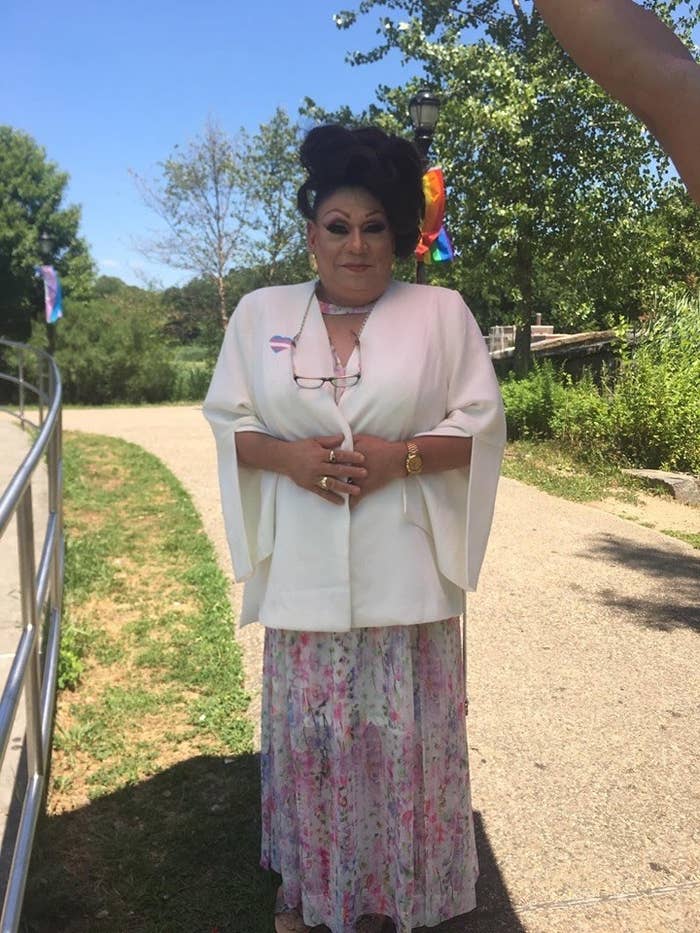
The journalists at BuzzFeed News are proud to bring you trustworthy and relevant reporting about the coronavirus. To help keep this news free, become a member and sign up for our newsletter, Outbreak Today.
Lorena Borjas, a longtime advocate for transgender people, undocumented immigrants, and sex workers in Queens, New York, died of COVID-19 on March 30. She was 59.
“Lorena is and will always be that trans mother, who, although she lived through hard times and life was unfair to her, she always wanted better for us,” Liaam Winslet, a transgender woman from Ecuador who sought asylum in the US in 2012 with Borjas’s help, told BuzzFeed News.
Borjas was a mentor and champion for the community of Latina transgender sex workers in Queens for almost two decades. She would distribute condoms to sex workers on the street, help them access HIV care, arrange lawyers and bail money when they got arrested, and help undocumented immigrants win legal status.
“Everybody would have Lorena’s number on speed dial,” said Cecilia Gentili, a transgender activist who first met Borjas in 2005 at a nightclub where Borjas organized HIV testing.
A sex worker who was arrested in the middle of the night could always count on Borjas to pick up the phone, Gentili said. “Early in the morning, she’d go to the courts to wait for the girls to see the judge — it makes such a difference when a judge looks at a sex worker and sees if they have someone behind her.”
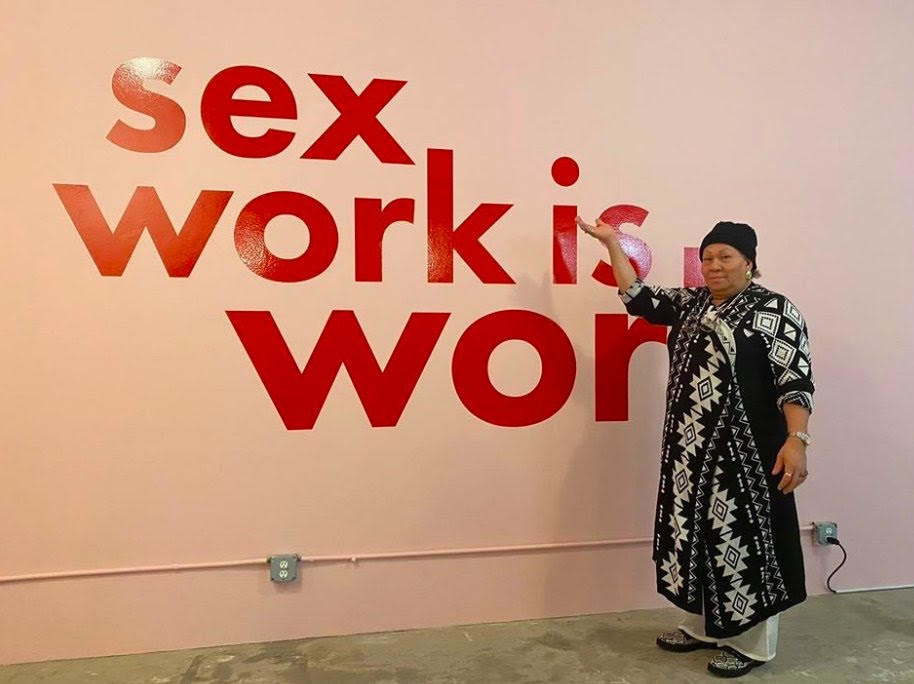
Borjas did most of her activism without any formal organization behind her. Borjas ran away from her home in Veracruz, Mexico, at the age of 17, and came to the US in 1981 after a few years living on the streets of Mexico City, Gentili said. She got a green card when President Ronald Reagan granted amnesty to undocumented immigrants in 1986.
But hard years followed for Borjas — a drug addiction and more dangerous sex work. She also wound up in an abusive relationship with someone who forced her to do sex work against her will. She got her life back on track in the late '90s, but arrests during these years meant she couldn’t renew her green card. But she later received a pardon from the governor of New York, and she became a citizen last year.
Her firsthand experience with sex work and the courts meant she knew what kind of help could make the biggest difference, Gentili said.
“She was very interested in breaking the cycle that is arrest, jail time, immigration detention, deportation procedures,” Gentili said. “She knew if she was able to pay the bail, the girls wouldn’t go to jail… When you fall in the first step, you just keep going down.”
In 2011, Borjas teamed up with Chase Strangio, who is now the deputy director for transgender justice at the ACLU’s LGBT & HIV Project, to start a fund to pay bail for undocumented sex workers. This was at a time when the Obama administration had stepped up enforcement of immigration laws, and it was clear the need for support was greater than could be managed in an ad hoc manner, Strangio said. The organization directly bailed out more than 50 people, Strangio estimated, and helped inspire the creation of other bail funds.
“She was the driving force behind, I would [estimate], hundreds of LGBTQ people getting immigration status over the last decade,” Strangio said.
But all of Borjas's experience navigating social services and bureaucracy didn’t make it easy for her to get care when she developed a fever and a cough on March 14. She called Gentili that morning to cancel a meeting to work on grant applications for her community work, saying she had a fever and a cough. She didn’t want to go to the doctor, so Gentili got off the phone and called an ambulance for her.
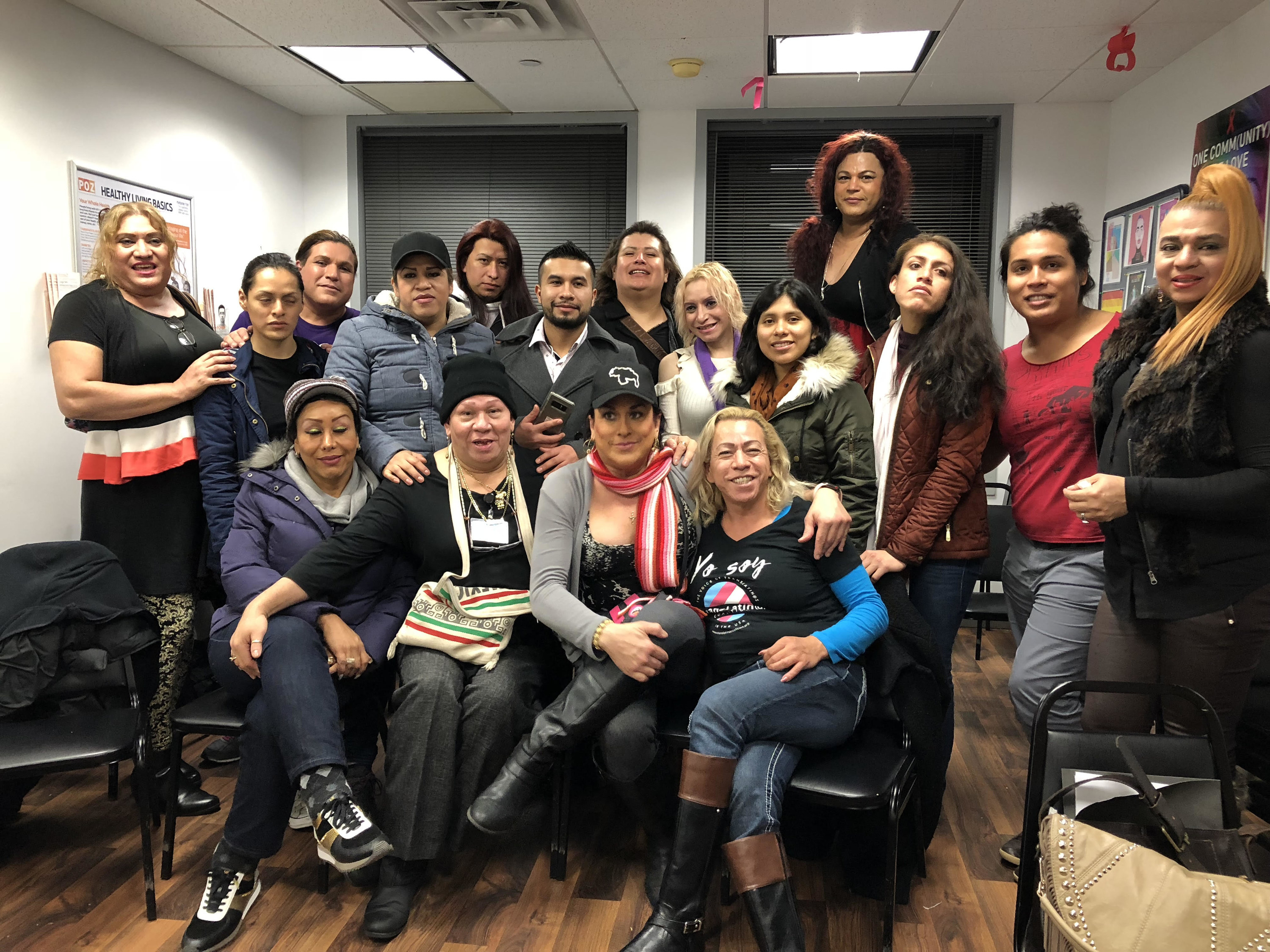
The ambulance took her 2.5 miles away to the Long Island Jewish Medical Center campus in Forest Hills — her local hospital, Elmhurst, has been one of the most overwhelmed by the coronavirus. Borjas’s English wasn’t very good, Gentili said, and the hospital didn’t provide enough Spanish interpreters, so she couldn’t manage her own care. They discharged her on March 16 after her symptoms improved, but Gentili said Borjas didn’t understand that she needed to quarantine herself.
Borjas also said in a text message to Gentili on March 16 that she'd not gotten the results of her COVID test. This contradicts what's recorded in her chart, according to Long Island Jewish Medical Center spokesman Terry Lynam, who said records say Borjas was given her test results on the morning of March 15. But Gentili said she spoke directly with Borjas's doctor before her discharge, who promised to be in touch when the results came in.
Borjas suddenly took a turn for the worse a few days later and was taken back to the hospital on March 25 and put on a ventilator. She died on March 30.
Borjas's story is emblematic of the one facing her community at large during the pandemic. People without health insurance are worried about unaffordable hospital bills, Winslet said, but also many transgender women and immigrants have had painful experiences with doctors in the past, and aren’t eager to go again. Of 56 sex workers who applied to the emergency fund during the coronavirus outbreak, Winslet said, 29 reported than having symptoms but only three went to the hospital.
Borjas “didn’t want to stay in the hospital, precisely because of her previous experiences,” Winslet said. “There are many institutions that exclude us, that limit us, that silence us, and many times we are cast to the side… But we fight.”
Winslet is now helping keep alive Borjas’s work: an emergency fund for sex workers, a transgender center still in development, and a trans rights collective. That’s what Borjas wanted them to continue doing, Winslet said. The last time they spoke, she recalled Borjas saying to her, “if something happens, I want you to continue fighting with the girls. Now you all have to do more for those who have nothing. For the ones who need you.”
CORRECTION
Borjas was first treated at the Long Island Jewish Medical Center in Forest Hills, not the location in New Hyde Park. A previous version of this story misstated the location.
UPDATE
This story has been updated to include comments from a Long Island Jewish Medical Center spokesperson.


